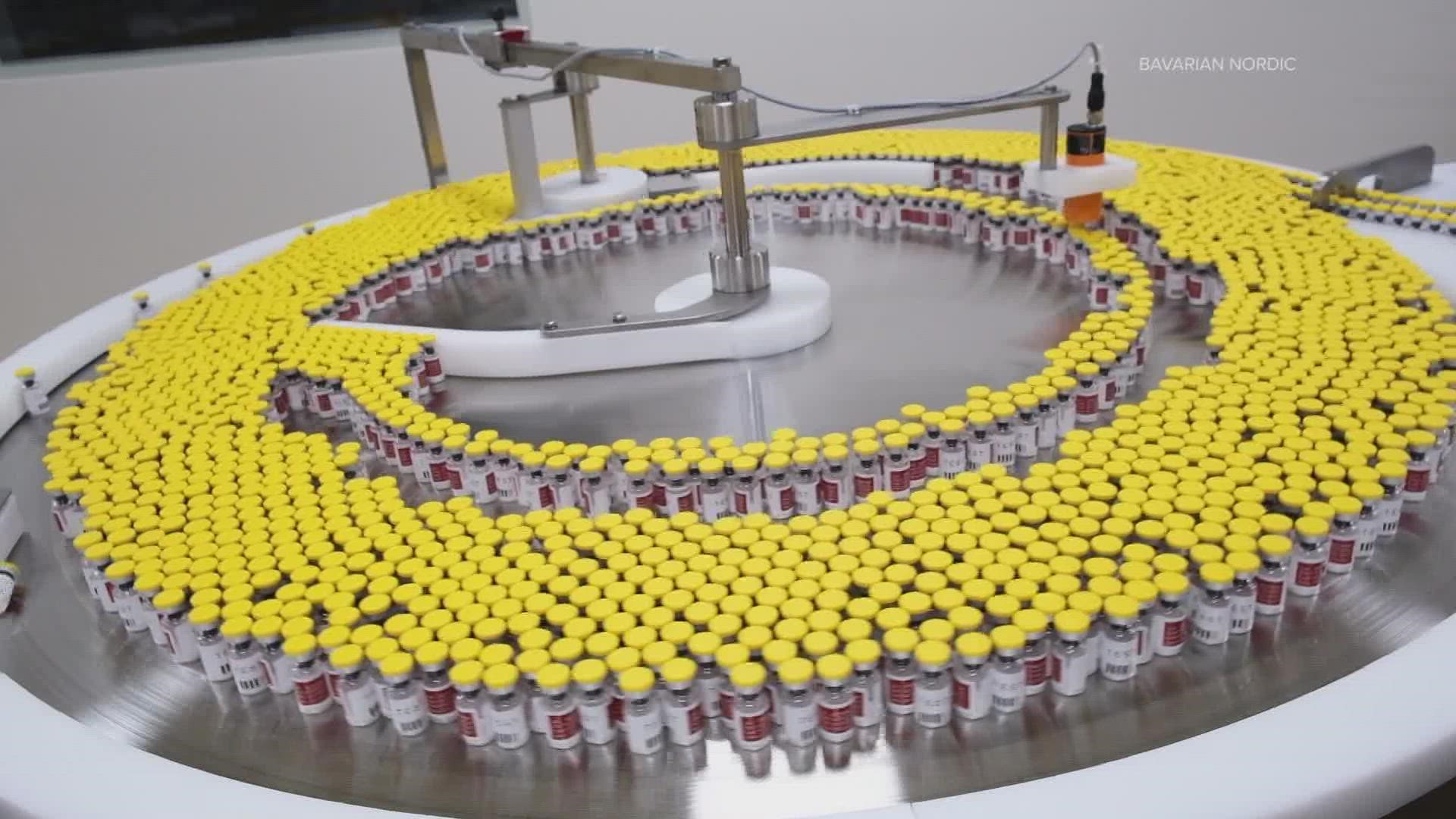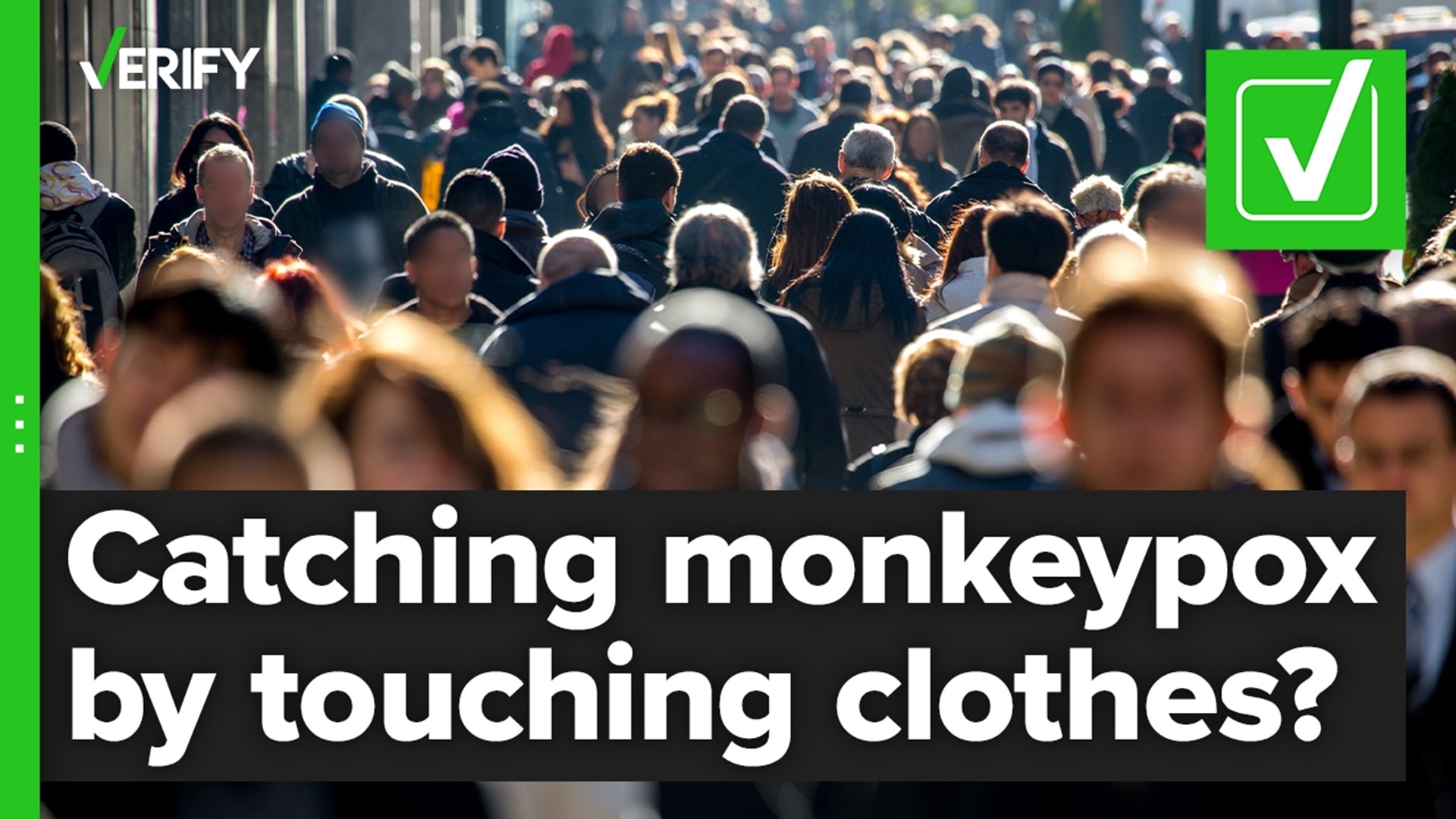PORTLAND, Maine — Maine is deploying its 311 doses of monkeypox vaccine Friday at clinics across the state to try to prevent the spread of the virus.
As of Friday, Aug. 5, the Maine CDC reported three cases: one in York County, one in Penobscot County, and a third in Aroostook County.
There are five permanent sites, according to the Maine CDC website:
Androscoggin:
- Maine Family Planning, 179 Lisbon St. Lewiston, ME 04240, 207-922-3222
Cumberland:
- City of Portland STD Clinic, 39 Forest Ave. Portland, ME 04101, 207-756-8067
- Gilman Street Clinic, 48 Gilman St. Portland, ME 04102, 207-661-4400
- Greater Portland Health, 100 Brickhill Ave. Suite 301 South Portland, ME 04106, 207-874-2141
York:
- Local Roots Health Care, 12 Depot St. Kennebunk, ME 04043, 207-569-2021 Schedule your appointment here
There are also pop-up clinics happening in Maine. The Dunaway Center in Ogunquit is hosting a drop-in clinic Friday, Aug. 5, from noon to 5 p.m. at 23 School St. in Ogunquit.
To be fully vaccinated for monkeypox, a person needs to receive two vaccine doses about four weeks apart. A person is considered fully vaccinated 14 days after their second vaccine. The Maine CDC said instructions will be shared on how to schedule a second vaccine appointment when the first shot is administered.
WHO IS ELIGIBLE?
Maine has a small amount of monkeypox vaccines available. At last update, the Maine CDC said it has 751 first doses of the vaccine. Currently, people who are at highest risk of getting monkeypox can get the vaccine. People who had close contact with a person with confirmed monkeypox in the past 14 days can get vaccinated for monkeypox.
According to the Maine CDC, some people with certain risk factors can also get vaccinated. You can get the monkeypox vaccine if:
- You are 18 years of age or older, AND
- You are an individual who is gay, bisexual, gender non-conforming, or other man who has sex with men, AND
- You had multiple male partners in the last 14 days, AND
- At least one of these:
- You had a partner in the last 14 days who had monkeypox symptoms.
- You met a recent sexual partner through online apps, social media, or at a large gathering.
- You have a weakened immune system.
"If you get the vaccine within four days after exposure, you can prevent developing the infection," said Mark Abel, MD, MPH, Northern Light Infectious Disease Care. "If they get vaccinated but say later than when they were exposed, so say four days after exposure, they might still get monkeypox, but the vaccine can reduce the severity."
Monkeypox virus can spread:
- When a person comes in contact with an infected animal
- Through direct contact with body fluid or sores of an infected person
- Through direct contact with contaminated materials, such as clothing or bedding
- Through respiratory droplets during prolonged face-to-face contact with an infected person
Monkeypox symptoms can include:
- Fever and chills
- Headache
- Muscle aches and backache
- Swollen lymph nodes
- Exhaustion
Monkeypox also includes a rash that can look like pimples or blisters that appears on the face, inside the mouth, and on other parts of the body, like the hands, feet, chest, genitals, or anus. See examples of monkeypox rash here.
"From a perspective of controlling the spread of this infection, the advantage there is that people know they are sick and they can isolate and hopefully prevent infecting other people," Abel said.
The rash goes through different stages before healing completely. The illness typically lasts two to four weeks. Sometimes, people get a rash first, followed by other symptoms. Others only experience the rash.


